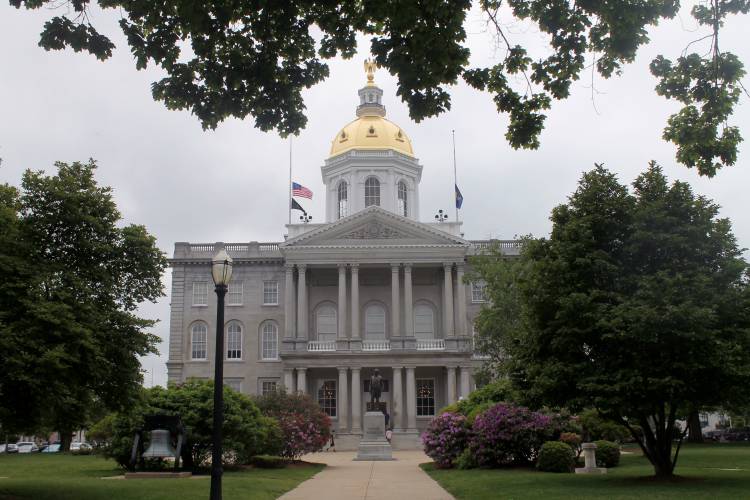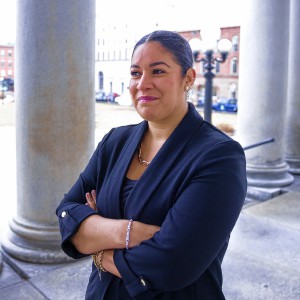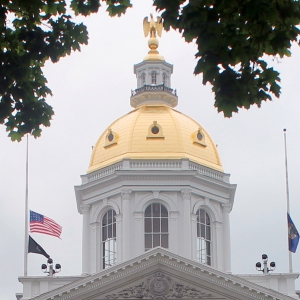Abortion data bill raises concerns among providers, privacy advocates

Holly Ramer/AP file photo
| Published: 05-02-2024 11:00 AM |
Abortion providers and some privacy advocates are rallying against a Republican proposal to collect abortion statistics, arguing the bill as written could put patient identities at risk.
New Hampshire is one of four states that doesn’t collect and report abortion statistics. In practice, local providers already voluntarily share some aggregated abortion data, including the total number of procedures, with national abortion research groups.
Republican lawmakers have repeatedly tried to require abortion providers to share certain data. For supporters, bringing New Hampshire in line with the vast majority of other states would ensure policymakers have the tools they need to craft legislation.
“More data is better than less data,” said Jason Hennessey with New Hampshire Right to Life, which opposes abortion rights, during a public hearing Wednesday.
The latest effort, Senate Bill 461, cleared the New Hampshire Senate on a party line vote last month. It would require providers to share the date and location of each abortion performed with the New Hampshire Department of Health and Human Services. Providers would also be required to specify the method used, including if a medication was prescribed, as well as the patient’s state of residence and the gestational age of the fetus.
During a hearing in the House Health and Human Services Committee, Hennessey asked lawmakers to expand the data collected to include any post-abortion complications, and to amend the bill to include potential monetary fines for any providers who don’t comply with the requirements.
But Sen. Cindy Rosenwald, a Democrat from Nashua, told House lawmakers that, as written, the proposal is too broad — and fails to explicitly prevent abortion providers from disclosing the names of patients who receive abortions.
“This bill now leaves the door open to letting our state government know specifically who is getting an abortion in New Hampshire,” she said.
Article continues after...
Yesterday's Most Read Articles
 ACLU asks New Hampshire federal judge to reinstate student status for more than 100 international students
ACLU asks New Hampshire federal judge to reinstate student status for more than 100 international students
 Hopkinton structure fire spreads to surrounding brush and fields
Hopkinton structure fire spreads to surrounding brush and fields
 ‘People just want to speak up’ – Another large anti-Trump weekend rally in Concord
‘People just want to speak up’ – Another large anti-Trump weekend rally in Concord
 Concord’s Giant Indoor Yard Sale returns
Concord’s Giant Indoor Yard Sale returns
 Stalled seasonal visa system cancels Concord’s Kiwanis Fair scheduled for next month
Stalled seasonal visa system cancels Concord’s Kiwanis Fair scheduled for next month
Rosenwald said she doesn’t oppose the state collecting abortion-related data, as long as it protects the privacy of both patients and providers.
The bill also drew concern from a former Republican legislator known for championing privacy rights during his time in office, Neal Kurk of Weare. He noted that releasing the exact location where an abortion was performed or prescribed, such as at a local physician's office, could risk identifying the patient.
“In a small town, it may be very obvious to folks as to whom that woman was,” Kurk said.
Under the current version of the bill, the New Hampshire Department of Health and Human Services would be required to publish annual data on abortions, but the bill doesn’t say whether the information would be released in aggregate or separated out by facility.
Patricia Tilley, who oversees the state’s public health division, told lawmakers that implementing a data collection system would require the state to purchase secure software and hire additional staff to manage the process. Tilley said she was not able to specify a cost but said it could be “in the ballpark” of $1 million.
Abortion providers say they already voluntarily share aggregated data with research groups, including the Guttmacher Institute, which supports abortion rights and produces research on sexual health. According to Guttmacher, an estimated 2,400 abortions took place in New Hampshire in 2023.
“We certainly understand the concept of this bill,” Kayla Montgomery, a spokesperson for Planned Parenthood of Northern New England, told lawmakers Wednesday. “But with Roe v. Wade overturned, and the reproductive health care landscape in complete chaos in this country, the New Hampshire Legislature should take every precaution to protect abortion providers and patients.”
Montgomery said Planned Parenthood of Northern New England already shares data with the state of Maine, which uses a secure portal for providers to upload certain abortion metrics.
Other abortion providers, however, opposed the bill because they don’t believe it has a significant public health benefit.
Dr. Ilana Cass, a gynecologic oncologist from Dartmouth Hitchcock Medical Center, warned lawmakers that releasing any detailed information about who is providing abortions in the state would put medical staff at risk of acts of violence and harassment.
“I think this exposes patients to risk, and I think it ultimately exposes the people of the Granite State to risk,” said Cass. “This is a slippery slope.”







 ‘A wild accusation’: House votes to nix Child Advocate after Rep. suggests legislative interference
‘A wild accusation’: House votes to nix Child Advocate after Rep. suggests legislative interference  Sununu decides he won’t run for Senate despite praise from Trump
Sununu decides he won’t run for Senate despite praise from Trump Town elections offer preview of citizenship voting rules being considered nationwide
Town elections offer preview of citizenship voting rules being considered nationwide Medical aid in dying, education funding, transgender issues: What to look for in the State House this week
Medical aid in dying, education funding, transgender issues: What to look for in the State House this week
